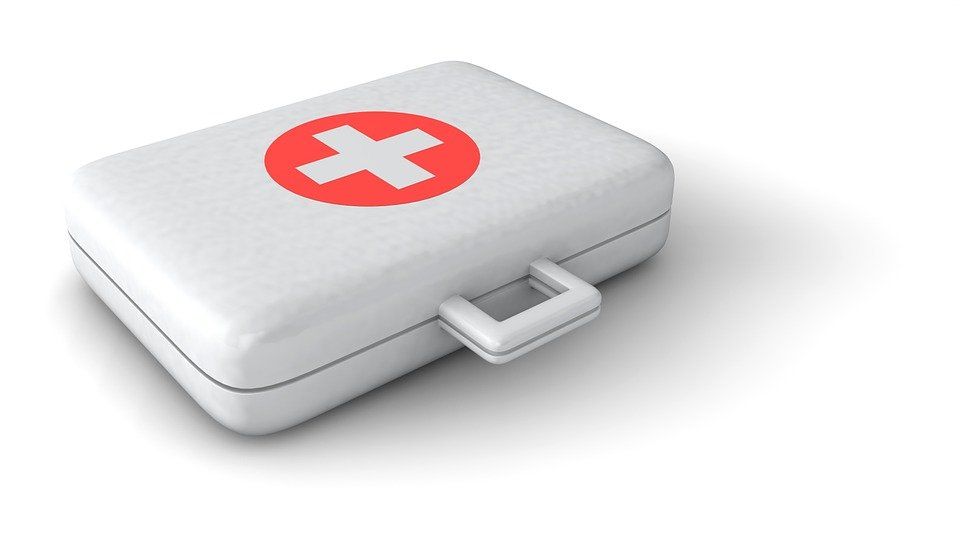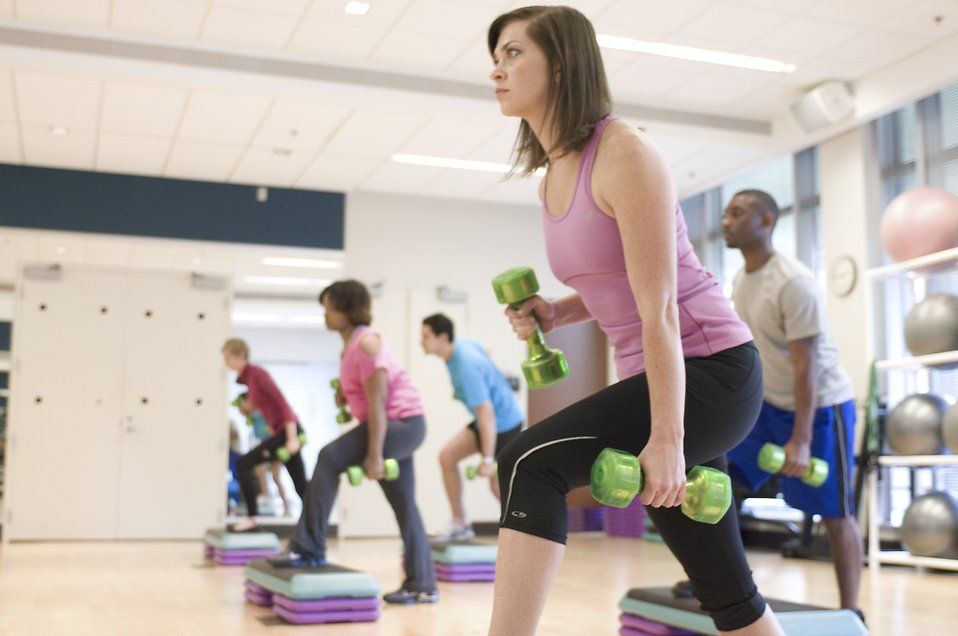You’ve packed your flip flops, but have your planned your travel health?
- By Bruce Jobling
- •
- 20 Jun, 2016
- •

Travelling abroad is exciting, but with so many things to look
forward to while you are away, the basics of health and safety are sometimes
neglected. Don’t
leave it until a few days before you fly to get travel health advice. Try to
get into the habit of thinking about your travel health a few months before.
We’ve put together a travel checklist to help you plan for your trip abroad and stay healthy and safe while you’re there.
Vaccinations
Depending on where you’re going, you may need special vaccines or medications as a precaution against various diseases. The vaccinations you may need will depend on a number of things like the areas you visit, activities you do and where you stay. If you're planning a trip abroad, we can advise on which vaccines you will need. Please email us at info@ThePrivateGP.uk with the place, date, duration and activities you will doing if you need advice.
Prepare a travel health essentials kit. These will be useful wherever you’re going and can include:
· Sunscreen
· Medications
· First aid kit
· Painkillers
· Insect repellent
· Anti-diarrhoea pills
If you have a pre-existing medical condition, make sure you take enough medical supplies for the duration of your holiday as well as any unexpected delays.
Don’t travel without insurance
Ensure you have cover for any activities you are likely to undertake, including extreme or water sports. If you’re travelling within the European Economic Area you can get a free European Health Insurance Card for free or reduced emergency care – you still need full travel insurance though!
Deep Vein Thrombosis
Contact us if you think you may be at risk of developing deep vein thrombosis (DVT).
On long-haul flights, get up from your seat to walk around and stretch your legs whenever you can. Drink regularly, avoiding alcohol. Wear loose, comfortable clothes. There is evidence to suggest that compression stockings are effective in reducing the risk of developing DVT.
Jet Lag
It’s hard to eliminate jet lag altogether if you’re traveling across multiple time zones, however you can lessen its effects with some simple strategies. To get over jet lag quickly, adjust to your destination as soon as possible.
- Establish a routine – Set your watch to the time at your destination as soon as you board the plane. Eat and sleep at the correct times for your new time zone, not when you usually eat and sleep at home
- Avoid sleeping as soon as you arrive at your destination – To help your body adjust more quickly try to stay active until the correct time to sleep (even if you're tired after a long flight).
- Spend
time outdoors – natural daylight will help your body adjust to a new routine.

Nobody wants to be ill over the Winter period, and it can be
frustrating when services are difficult to access and out of hours cover is
stretched.
As our existing customers at The Private GP Service will know, we take all that worry and frustration away. Our service gives you peace of mind with:
· Prompt, personal care
· Immediate telephone advice from a doctor
· Same day appointments available
· Home visits available 24 hours a day
Our 24 / 7 service provides you with outstanding extra medical care when and where you need it, in addition to your NHS GP.
We’d love you to recommend us to your friends and family and tell them about the value of our private GP service.

11th to 17th January is National Obesity Awareness Week and the National Obesity Forum is encouraging everyone to ‘Do Something Good For U’.
Why not start the new year with a plan to eat more healthily, do more exercise and improve your health?
Seven easy ways to be more active:
1. Cleaning – put some music on to make this chore more fun and get you moving
2. Ditch the online shopping and take a walk round the shops
3. Get stretching – you can do simple stretches at home, or join a yoga or pilates class to learn some more challenging exercises
4. Walk the dog – if you don’t have one you could offer to walk a friend’s dog
5. Get out and about – go for a walk, take the kids out, join a club or charity which involves some sort of physical activity
6. Join a dance class – it’s fun as well as good exercise
7. Enjoy our parks and countryside – explore the area around you and get exercise at the same time
Eating more healthily is one of the simplest changes most of us can make to improve our health and lose weight. There are lots of recommendations out there about healthy food and diet and we’re happy to speak to you about this if you feel you need some help and advice. Some simple switches you can make in order to eat more healthily:
· Replace two slices of toast with butter and jam for two slices of toast thinly spread with peanut butter
· Switch one chocolate cupcake for one toasted teacake
· Instead of a full sugar fizzy drink, have a diet version or a glass of sparkling water
· Switch your sugary breakfast cereal for a bowl of porridge made with unsweetened almond milk
· Replace two chocolate digestives with a small handful of nuts or two rich tea biscuits
So whether it’s cooking more healthily, avoiding snacks, or being a little more physically active, join in National Obesity Awareness week and ‘Do Something Good For U'.

January is Love Your Liver month, a national awareness initiative designed to promote liver health by the British Liver Trust – the UK charity for adults with liver conditions. January is also the month when Alcohol Concern run their annual campaign challenging people to give up alcohol for the 31 days of January.
January is traditionally the month of new year’s resolutions and starting the new year with an improved attitude to health and fitness, so Dry January is the perfect way to get 2017 off to a healthy start – your liver will thank you for it!
The liver is a vital organ, performing hundreds of essential bodily functions related to metabolism, digestion, immunity, and nutrient storage within the body. In short, your liver is vital to your survival.
There are over 100 types of liver disease, affecting at least 2 million people in the UK, including alcoholic liver disease, cirrhosis and hepatitis.
While some liver problems are temporary and go away on their own, others can get progressively worse and result in serious complications.
Whether or not you’re planning a Dry January, there are three simple things you can do to look after your liver:
- Stay off alcohol for two to three consecutive days each week
- Avoid fatty foods wherever possible
- Take regular exercise
The great thing about these three simple steps is that following them will provide other noticeable health benefits, including weight loss and improved energy levels.
The British Liver Trust is a national charity that funds medical research, provides vital support for those living with a liver condition and raises public awareness to prevent liver disease. Visit www.britishlivertrust.org.uk for more information.
Throughout December Bowl Cancer UK is encouraging men to ditch their shaving routines and grow a beard to raise awareness of bowel cancer and fund vital research to stop the disease. Decembeard encourages a month of manliness where men help promote this cause by growing beards during December.
Bowel cancer is the fourth most common cancer in the UK. Every 15 minutes in the UK someone is diagnosed with bowel cancer. That’s nearly 42,000 people every year. Around 290,000 people living in the UK today have been diagnosed with bowel cancer. Someone dies from bowel cancer every half an hour.
Knowing the symptoms can save lives. If you notice any one or more of the following symptoms, it is usually quite safe to watch and wait for up to three weeks. But if the symptoms have not settled down after this time, you should see your doctor:
- Bleeding from the bottom or blood in your poo
- A persistent change in bowel habit
- Abdominal pain
- A lump in your tummy
- Unexplained weight loss or tiredness
http://www.decembeard.org/

Men’s Health Week runs from 13-19 June 2016. This year’s theme is how to beat stress. Organised by the Men’s Health Forum, the annual awareness week aims to highlight health issues experienced by men, and stimulate discussion and openness around them. The key message being promoted for this year’s Men’s Health Week is to address stress, and the potentially serious problems that can lead from it, by talking about it.
Stress can affect one in four people and, if not addressed and dealt with properly, can lead to more complicated and serious issues. There are many ways to deal with stress that can help, even on a day-to-day basis – listening to music, taking time to go for a walk or read a book, for example. Basically anything that takes you away from, and stops you thinking about, whatever it is that causes you to become stressed. It’s also good to talk, which is one of the main messages Men’s Health Week is promoting – whether that’s talking to a friend, colleague, family member or a professional.
To support this, Men’s Health Forum are setting up a new Beat Stress service during Men’s Health Week, which offers a free text chat service with professionals, to help deal with any stress issues you may have. It’s completely anonymous with no obligation, to encourage men to open up.
You can of course also talk to us about stress and stress-related issues that you’re having. Even small stresses can build into big problems, so it’s always a good idea to talk to someone.

While many of us enjoy the sun and warmer weather, whatever
your age it’s important to enjoy the sun safely. I’m sure you have heard it all
before and know that overexposure to the sun and sunbeds can cause skin cancer.
But it’s something
that many of us still let slip.
Our top tips for staying safe in the sun are:
- Spend time in the shade between 11am and 3pm. If
your shadow is shorter than you are then the sun is strong and more likely to
burn you.
- Cover up with a t-shirt, hat and sunglasses.
- Use a sunscreen with a protection level of at
least SPF15 and 4 stars. Use it generously and re-apply regularly.
In the UK more than 8 in 10 cases of melanoma, the most serious type of skin cancer, could be prevented through enjoying the sun safely and avoiding sunburn. This summer embrace your own natural skin tone and protect it from the harmful rays of the sun. If you really want to tan, it's safer to fake it than bake it.
Whether you like a deep golden tan or more subtle shimmer there are plenty of options, from smooth lotions to fluffy mousses and handy sprays. Here are our favourite three products:
- Superdrug Solait Self Tan Lotion – Easy to
apply, doesn't streak and gives a beautiful natural golden tan. More affordable
than other fake tans on the market.
- Fake Bake 60 Minutes Self-Tan Liquid – Produces
a lovely long-lasting golden tan in one hour.
- St Moriz Self Tanning Mouse – Perfect for
recreating a holiday tan, it creates an instant bronzing effect and flawless
tan.
